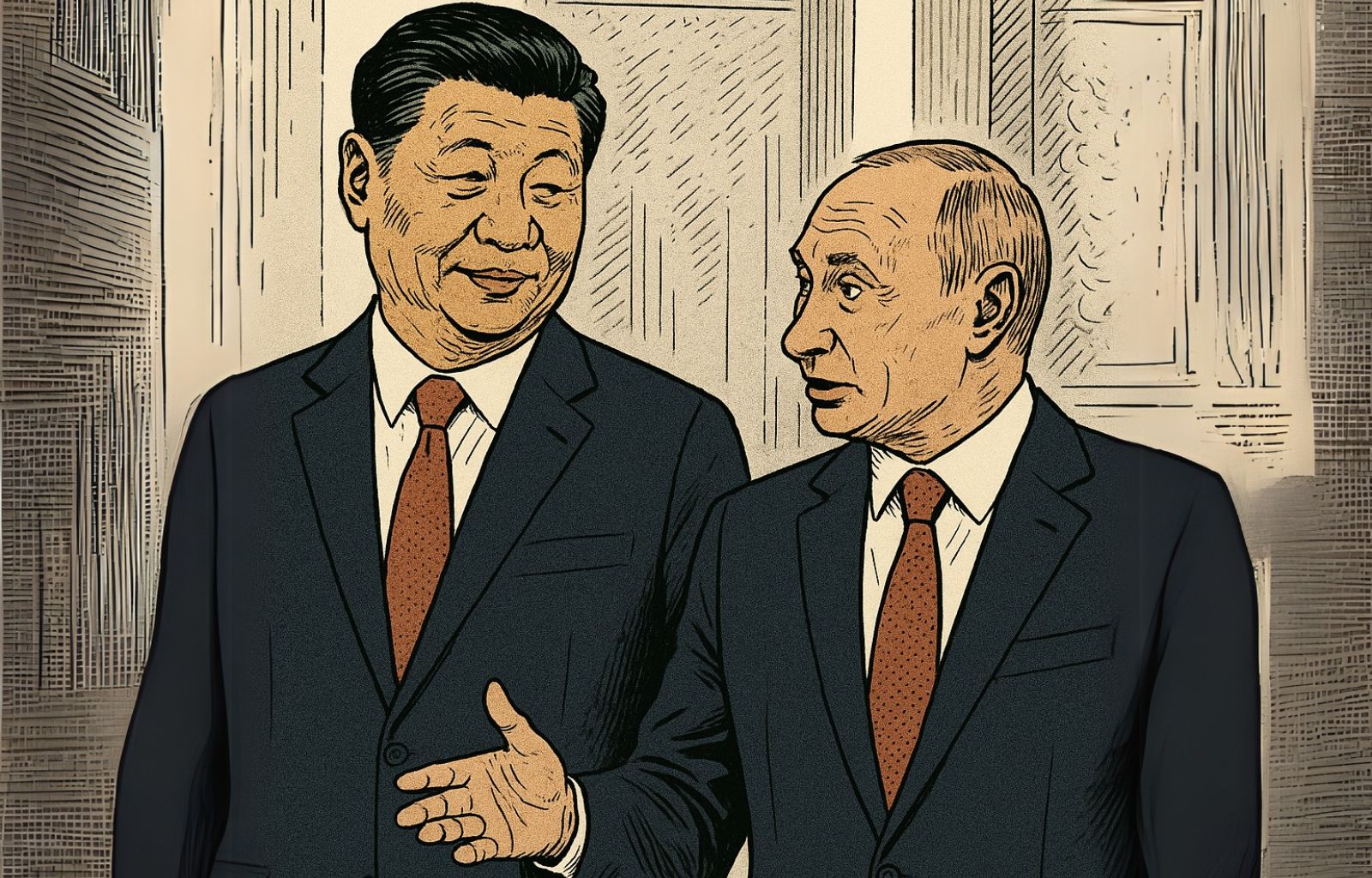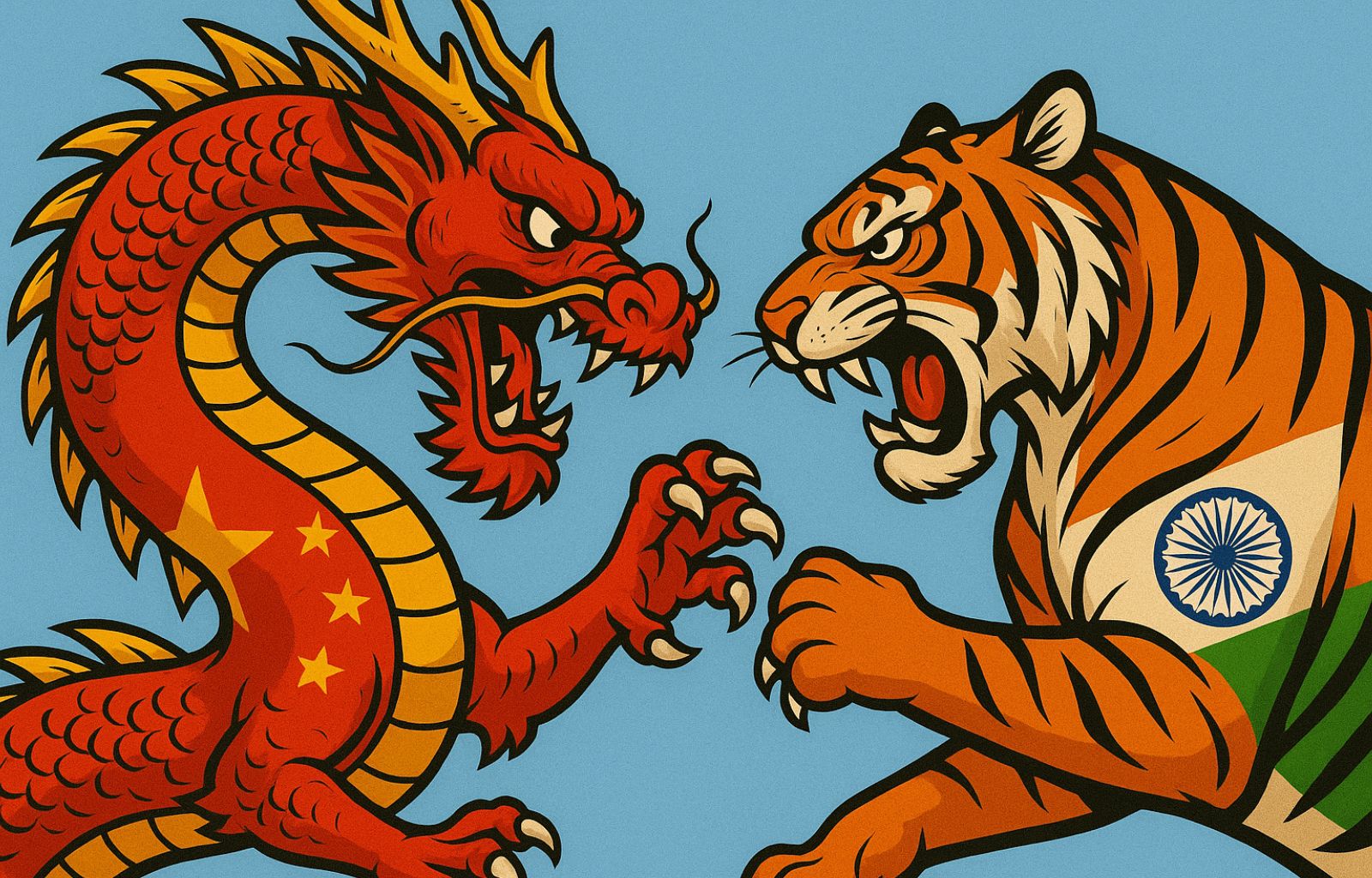FSB’s secret files: Russia and China friends only in front of the cameras

Official rhetoric speaks of a ‘partnership without limits‘. Vladimir Putin and Xi Jinping shake hands in front of the cameras, signing energy agreements and celebrating the unity of ‘non-aligned’ countries against the West. But behind the scenes, in confidential documents of the Russian Federal Security Service (FSB), the face of China is described as that of a hostile competitor, a ruthless observer of the conflict in Ukraine and, perhaps, a future territorial revisionist. This is revealed in an explosive investigation by the New York Times, published on 7 June 2025, based on a classified Russian intelligence document and confirmed by intelligence sources from six Western countries. A thread by Massimiliano Di Mario, a keen observer of Russian dynamics, effectively relaunched the contents of this leak in Italy, underlining the strategic and symbolic significance of the revelation.
A threat called an ally
The document, an eight-page plan drafted between late 2023 and early 2024, represents a deep crack in the apparent mosaic of the Moscow-Beijing axis. In it, the FSB describes China not only as a growing source of security concerns, but even as an undercover ‘enemy’, actively engaged in spying on Russia and preparing for future conflict scenarios.
According to reports in the New York Times, Chinese agents have intensified their intelligence activities against Russia, targeting scientists, defence officials and military institutions. The goal: to appropriate sensitive technologies related to modern warfare, especially drone tactics and countermeasures systems against Western weapons. But not only that. Chinese intelligence is said to be carefully studying the behaviour of Russian troops on the Ukrainian field, with the intention of adapting those strategies to future contexts, first and foremost in the South China Sea or the Taiwan Strait. A clinical and utilitarian observation, which turns the massacre in Ukraine into a laboratory for Beijing’s global ambitions.
‘Entente-4’: counter-espionage at the time of friendship
Since the beginning of the invasion of Ukraine, the Kremlin has relied on China’s economic and diplomatic support to compensate for Western isolation. But just a few days before 24 February 2022, the FSB had already activated an internal counterintelligence programme, called Entente-4, aimed at limiting Chinese penetration into Russia’s strategic scientific and industrial sectors.
The name of the operation – ironically evoking the old anti-German alliance of the First World War – actually reflects a geopolitical short-circuit:while the official narrative insists on Eurasian unity against the West, the intelligence services already act as if Beijing is a camouflaged adversary.
Entente-4 was not just a defensive programme, but a systematic campaign of monitoring, informing and persuading Russian citizens involved in relations with China to prevent their infiltration or manipulation. The security authorities, according to the document, fear that Chinese involvement in academic and industrial programmes in Russia is only a façade for much deeper purposes.
The long shadow of the past and the return of maps
The Kremlin’s suspicions do not stop at espionage. A particularly disturbing section of the dossier concerns possible Chinese territorial claims on the Russian Far East. The Russian services denounce the activities of Chinese researchers who, under the pretext of ethno-historical studies, trace connections between local populations and ancient Chinese peoples. In parallel, some Chinese publications have allegedly taken up the use of historical Chinese place names to designate regions annexed by Tsarist Russia in the 19th century. The fear? That Beijing is preparing the ground for a future revision of borders, working on memory and imagination rather than on international law.
Massimiliano Di Mario, in his thread, also points out that these concerns are not new: for years now, a part of the Russian establishment has feared that the growing Chinese projection in Siberia and the Amur region could one day turn into political or territorial pressure. In this light, the FSB dossier seems to confirm that these fears are no longer just academic hypotheses, but operational assessments.

The Arctic, Central Asia and the routes of mistrust
Tensions also emerge in other geopolitical theatres. The document classifies as suspect many of Beijing’s academic and humanitarian initiatives in Central Asia and the Arctic, two areas where Russia still considers its post-Soviet influence intact. According to the FSB, behind mining projects, scientific missions and cultural exchanges lie systematic data-gathering and influence-building operations: soft power disguised as cooperation.
In particular, the Arctic is described as a critical area: Chinese companies, often connected to the government, would collect strategic data masquerading as geological research, thus positioning themselves for future claims on resources and shipping routes. A silent advance, compatible with the traditional Chinese strategy of ‘gradual penetration’.
Dependence and ambiguity: Russia walks a tightrope
Yet despite fears and counter-intelligence operations, the Kremlin cannot afford a direct confrontation. China is today Russia’s leading oil buyer, an irreplaceable partner for the supply of electronic and military components, and a diplomatic umbrella in the multilateral system. The FSB therefore urges its cadres to exercise utmost caution: any initiative towards China must be authorised at the highest political level. In other words, the priority is to avoid scandals, to handle the friction discreetly, to keep the confrontation quiet.
It is a strategy that reveals a deep ambiguity. On the one hand, Putin continues to exhibit personal harmony with Xi Jinping – more than forty bilateral meetings in the last few years -. On the other, his security apparatus works to contain that same China, as if the invasion of Ukraine had consigned Russia to a new dependency, perhaps even more oppressive than that of the West.
Beyond rhetoric, an unstable balance
The FSB document, if authentic – as confirmed by the New York Times and six Western agencies – forces one to reconsider the true balance within the so-called ‘grand Eurasian alliance’. Public statements mask a relationship full of mistrust, tensions and strategic divergences. China, for its part, moves skilfully: it maintains formal neutrality on the war, positions itself as a peace actor, but meanwhile observes, absorbs, analyses, copies, expands.
Russia, caught between sanctions and isolation, has tied its fate to a giant that does not respond to any obligation of loyalty. And the real danger for the Kremlin may one day come from Beijing.












